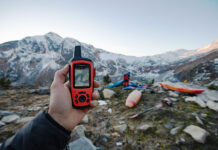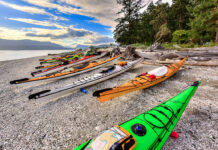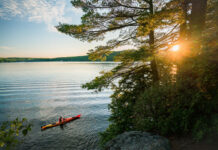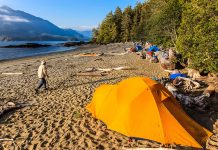A trick-or-treater showed up at my friends Paul and Kate’s house last Halloween. He didn’t arrive in costume. In fact, like all babies, he arrived buck-naked. Canyon Ross Kuthe, son of a paddling instructor and a river conservationist, was born with several in-utero paddling trips already under his belt. We’d been making the usual jokes: he’ll be rolling at one, surfing before the terrible twos, and running waterfalls by four. Every once in a while someone jokes that he’ll rebel and get really into video games. Paul glares at them.
But Paul and Kate have it right. I had similar experiences. Schulman family gatherings inevitably feature stories about camping trips I was too young to remember but clearly influenced my life path.
Children today spend less time in nature
Today’s kids spend less time in nature compared to past generations. With an estimated seven hours per day spent on electronics, it’s not surprising—what kid has time to go outside? Canyon’s adventure-friendly childhood is quickly becoming a relic of the past—and it’s a problem.
Modern medical research has piled up evidence that time spent in nature is essential to happy brains and bodies. We’ve proven that nature sparks creativity—which Byron and Wordsworth already knew from their inspiration-seeking rambles through the Lake District. We’ve shown that people recover faster from illness surrounded by nature—which Edward Trudeau knew way back in 1885, when he started tuberculosis rehabilita- tion in the Adirondacks. And exercising outdoors leaves you happier than working out indoors—which maybe your mom already knew when she told you to go outside and play.
Our connection with the natural world is likely hard-wired. Humans evolved in small bands, slow, clawless and flightless amongst saber-toothed cats. Our brains, social cohesion and opposable thumbs were what got us by. Familiarity with the environment had an evolutionary advantage. Everyone on Earth shares that wilderness-dwelling human heritage, even though most of us live very differently now.
Today 80 percent of North Americans live in cities, and that number continues to grow. We raise kids as independent parents instead of in communal groups. We get more done on screens than with our oppos- able thumbs. This has enormous benefits for individuality, social and geographic mobility, career fulfillment, and the leisure to paddle for fun rather than a desperate need for seal meat. Yet, as we distance ourselves from the natural world we suffer—and so does the next generation.
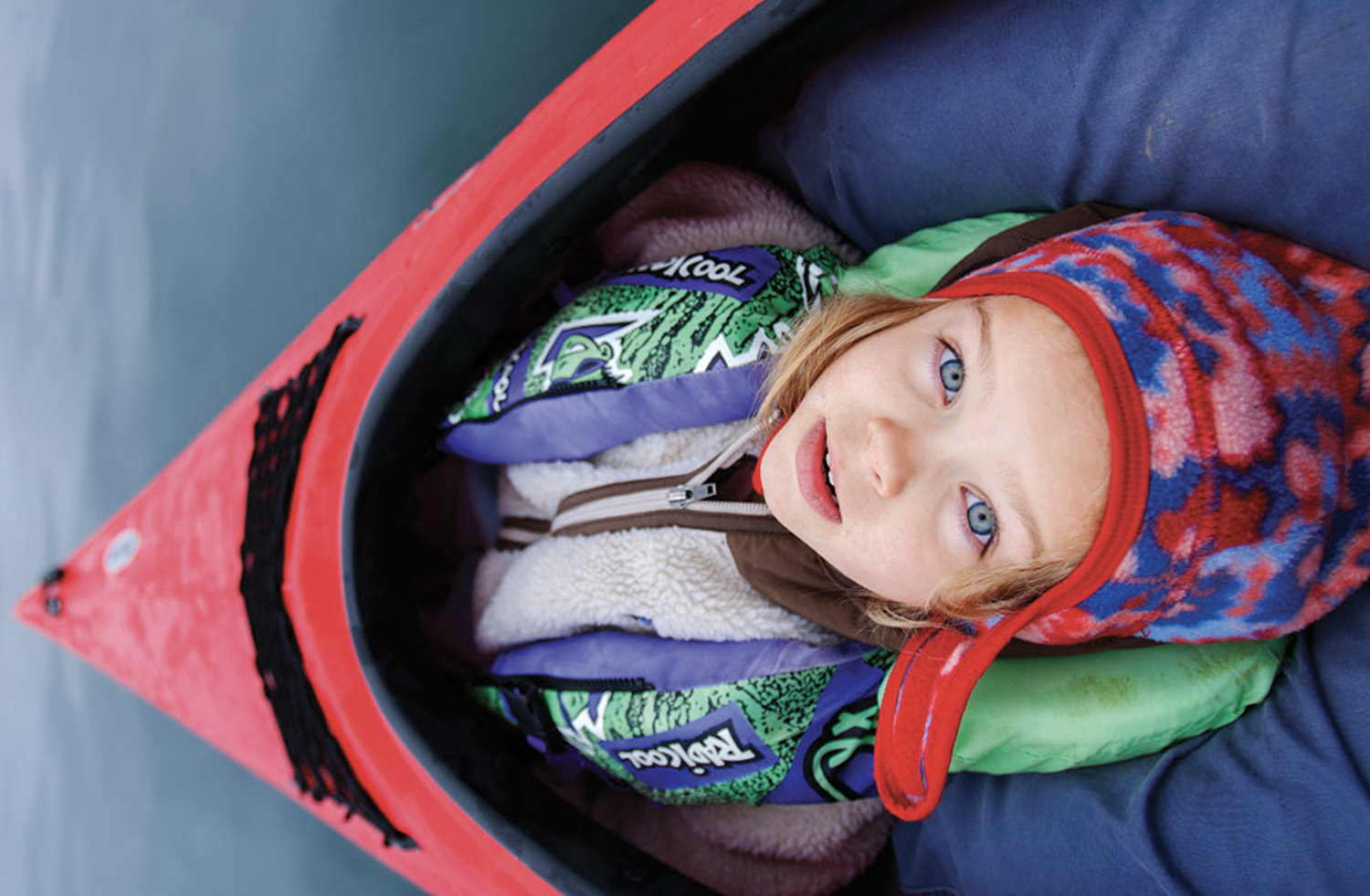
Grab a boat—any boat—and some kids, and get out on the water. Now, and often. Don’t worry about whether the kids ever learn an efficient for- ward stroke. First and foremost, kids need the opportunity to discover that being outside is awesome.
A few years ago, three friends and I were camped on an island deep in the British Columbia fjords. Two weeks of wilderness solitude was broken by an engine, which disgorged 12 kids on “our” beach and motored off. It was like Lord of the Flies. The unsupervised kids made tons of noise, built fires, swam from island to island in frigid water, chased each other through our camp, and kept us awake. At the time it pissed us off. But now I realize it may well have been the best possible thing in the world.
Neil Schulman celebrates kayaking’s diverse heritage in Reflections.
 This article originally appeared in the 2016 Paddling Buyer’s Guide issue.
This article originally appeared in the 2016 Paddling Buyer’s Guide issue.
Subscribe to Paddling Magazine and get 25 years of digital magazine archives including our legacy titles: Rapid, Adventure Kayak and Canoeroots.




